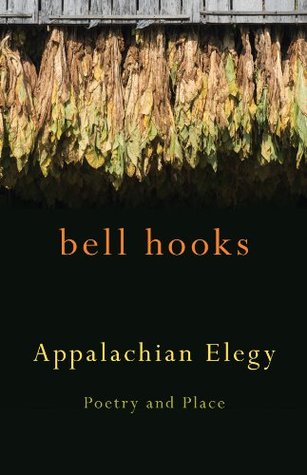More on this book
Community
Kindle Notes & Highlights
by
bell hooks
Read between
September 9 - October 19, 2020
This is the world I was born into: a world of wild things. In it the wilderness in me speaks. I am wild. I hear my elders caution mama, telling her that she is making a mistake, letting me “run wild,” letting me run with my brother as though no gender separates us. We are making our childhood together in the Kentucky hills, experiencing the freedom that comes from living away from civilization. Even as a child I knew that to be raised in the country, to come from the backwoods, left one without meaning or presence. Growing up we did not use terms like “hillbilly.” Country folk lived on
...more
I would come to associate the passion for freedom and the wildness I had experienced as a child with anarchy, with the belief in the power of the individual to be self-determining.
Folks from the backwoods were certain about two things: that every human soul needed to be free and that the responsibility of being free required one to be a person of integrity, a person who lived in such a way that there would always be congruency between what one thinks, says, and does.
While I do not claim an identity as Appalachian, I do claim a solidarity, a sense of belonging, that makes me one with the Appalachian past of my ancestors: black, Native American, white, all “people of one blood” who made homeplace in isolated landscapes where they could invent themselves, where they could savor a taste of freedom.
Without evoking a naïve naturalism that would suggest a world of innocence, I deem it an act of counterhegemonic resistance for black folks to talk openly of our experiences growing up in a southern world where we felt ourselves living in harmony with the natural world.
To be raised in a world where crops grown by the hands of loved ones is to experience an intimacy with earth and home that is lost when everything is out there, somewhere away from home, waiting to be purchased.
No one wanted to talk about the black farmers who lost land to white supremacist violence. No one wanted to talk about the extent to which that racialized terrorism created a turning point in the lives of black folks wherein nature, once seen as a freeing place, became a fearful place. That silence has kept us from knowing the ecohistories of black folks. It has kept folk from claiming an identity and a heritage that is so often forgotten or erased.
“I pay tribute to the past as a resource that can serve as a foundation for us to revision and renew our commitment to the present, to making a world where all people can live fully and well, where everyone, can belong.”
Those of us who dare to talk about the pain inflicted on red and black folks in this country, connecting that historical reality to the pain inflicted on our natural world, are often no longer silenced; we are simply ignored. It is the recognition of that pain that causes a constant mourning.
Belonging: A Culture of Place
My essays are almost always written in clear polemical prose, nothing abstract, nothing mysterious.
Poems of lamentation allow the melancholic loss that never truly disappears to be given voice. Like a slow solemn musical refrain played again and again, they call us to remember and mourn, to know again that as we work for change our struggle is also a struggle of memory against forgetting.
night moves through thick dark a heavy silence outside near the front window a black bear stamps down plants pushing back brush fleeing manmade confinement roaming unfettered confident any place can become home strutting down a steep hill as though freedom is all in the now no past no present
no crops grow when dense clay dirt packed solid defies all manmade intent to destroy let a blessing come here let earth heal and rejoice she has here mother of grace and constancy wild roses bloom scatter these hills with beauty that does not linger offering still the promise of healing and return
wingspan wide death covers all prey and predator turkey buzzards overhead at the bottom of the hill no eternity beckons just ongoing decay a deep smothering emptiness profound prolonged lamentation birds cry high
tap dancing on tin roofs heavy rain falls wetness spreading all over borders refusing containment flash flood warning sirens call stay in be still guard your heart let rain be the only necessary movement
fierce winter cold mind whispers a lost landscape telling stories of how it was then seated near fire drinking homemade spirits sake and brandy wine spirits bring contentment for a time carry us closer to the sacred moving through bitterness our yearning to hold on to moments of ecstasy where we imagine we hear clearly destiny calling
toward light each bird flies higher then higher then swooping down as though to plummet as though air a net to catch and comfort who can fear earth who can fear sky when faced with an infinite possibility each moment given a chance to soar to enter beyond
53. blackbirds come rest home let your dreaming winged flying spirits pause meditate pause your deep soul be peace for you can rest here in this green enchanted place claim sanctuary in these hills made sacred by native trust small yet mighty find your belonging
55. take the hand-me-downs make do no culture of poverty claiming lives here we a people of plenty back then work hard know no hunger grow food sew clothing build shelter moonshine still wine from grape we a marooned mountain people backwoods souls we know to live on little to make a simple life away from manmade laws and boundaries spirit guides teach us offer always the promise of an eternal now


